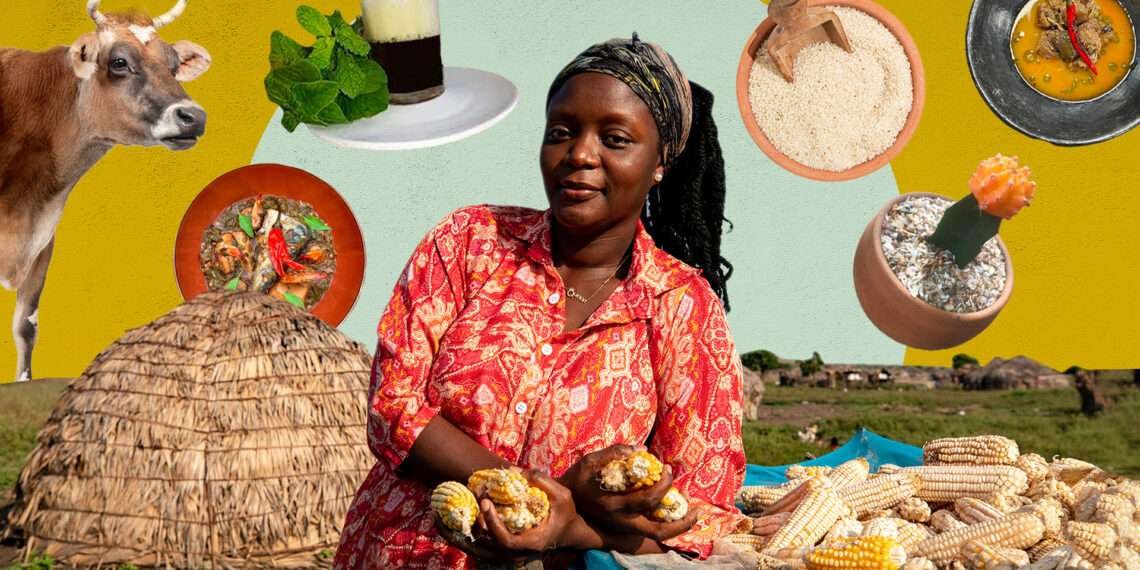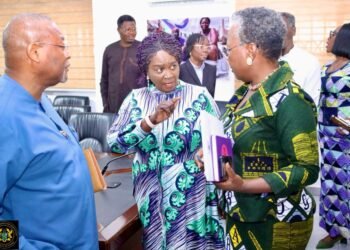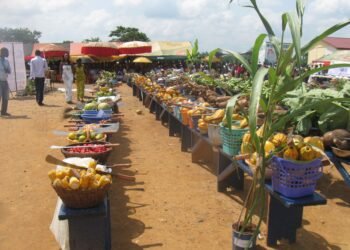The Food and Agriculture Organization (FAO) and renowned Chef Fatmata Binta have joined forces to strengthen food security and enhance the resilience of agrifood systems in Ghana.
The partnership which is with support from the Ministry of Food and Agriculture, focuses on empowering women Fonio farmers through training and modernizing traditional farming methods.
A three-day intensive training session was held in Chereponi, Northern Ghana, aimed at equipping women Fonio farmers with essential knowledge and skills. This training addressed challenges such as low yields and the labor-intensive nature of traditional Fonio production. By adopting good agricultural practices, these farmers can significantly improve their productivity.
Fonio, a nutrient-rich millet from West Africa, is known for its ability to thrive in harsh climates, making it a valuable crop in northern Ghana. Predominantly grown by women, Fonio is also one of the “forgotten foods” highlighted by the FAO, meaning it is underutilized despite its potential.
Chef Fatmata Binta recognizes the immense potential of Fonio as both an ingredient and a livelihood opportunity for women producers. She collaborates with the FAO to promote Fonio , emphasizing its nutritional benefits and resilience to climate change. “Fonio is an ancient grain with an exciting future,” Chef Binta says. “By improving its production, we can unlock great dividends for nutrition, women’s livelihoods, and the environment while also preserving a vital part of culinary heritage.”
Empowering Women Farmers
The training program featured comprehensive, hands-on sessions covering every aspect of Fonio production. Topics included site selection, land preparation, seed selection, germination tests, planting methods, fertilizer application, weed control, cropping systems, bird damage control, harvesting, threshing, winnowing, grain drying, hulling, whitening, packaging, and market access.
One of the trainees, Madam Comfort Cobinaka, affectionately known as “Mama Fonio ,” has been a dedicated Fonio farmer for over two decades. “This training has been incredibly insightful,” she says. “I now understand that sowing Fonio seeds in rows is more effective than the broadcasting method I previously used.”
The Fonio grain is small and encased in a tough husk that requires time-consuming pounding by hand to remove. This process produces a fine powder that can be inhaled, potentially causing health issues. To overcome these hurdles, Chef Binta, through her foundation, procured four modern processing machines specifically adapted for Fonio . Two of these machines were allocated to the Chereponi area, where the training took place.
These machines significantly reduce the labor burden on women farmers and allow them to process Fonio to a high standard for market sale. “By providing practical, field-based learning, the initiative aims to significantly enhance the capacity of women farmers to sustainably produce and process Fonio,” said acting FAO Representative in Ghana Priya Gujadhur. “This training is a testament to the power of knowledge and skills transfer and the use of technological innovation to transform agricultural practices for better production.”
Long-Term Benefits
Madam Janet Agyeiwaa Mensah, an agronomist with the Ministry of Food and Agriculture Directorate of Crop Services, facilitated the training and highlighted its long-term benefits.
“This programme will greatly enhance sustainable production and postharvest handling practices among the women Fonio farmers. The introduction of the Fonio processing machine will alleviate the labor-intensive nature of traditional processing methods, thereby improving the quality of life for these women.”
The training was funded by FAO through a Technical Cooperation Project modality. Better production is one of the four “betters” in the FAO Strategic Framework 2022-2031, alongside better nutrition, a better environment, and a better life. These goals aim to support countries in driving progress towards the Sustainable Development Goals.
Chef Binta, who won the 2022 Basque Culinary World Prize for promoting Fulani cuisine, including Fonio , through her “Dine on a Mat” concept, continues to support women Fonio producers through her foundation. Her collaboration with the FAO began in 2023, designated as the Year of Millets, and she remains dedicated to advocating for this ancient grain’s potential.
By modernizing Fonio farming and processing techniques, this initiative not only enhances agricultural productivity but also supports sustainable development and the preservation of cultural heritage. The future of Fonio looks promising, with its potential benefits extending beyond nutrition to encompass economic empowerment and environmental sustainability.
READ ALSO: Absa and Mastercard Foundation Invest Over GHS1.1 Billion in MSMEs























